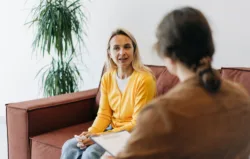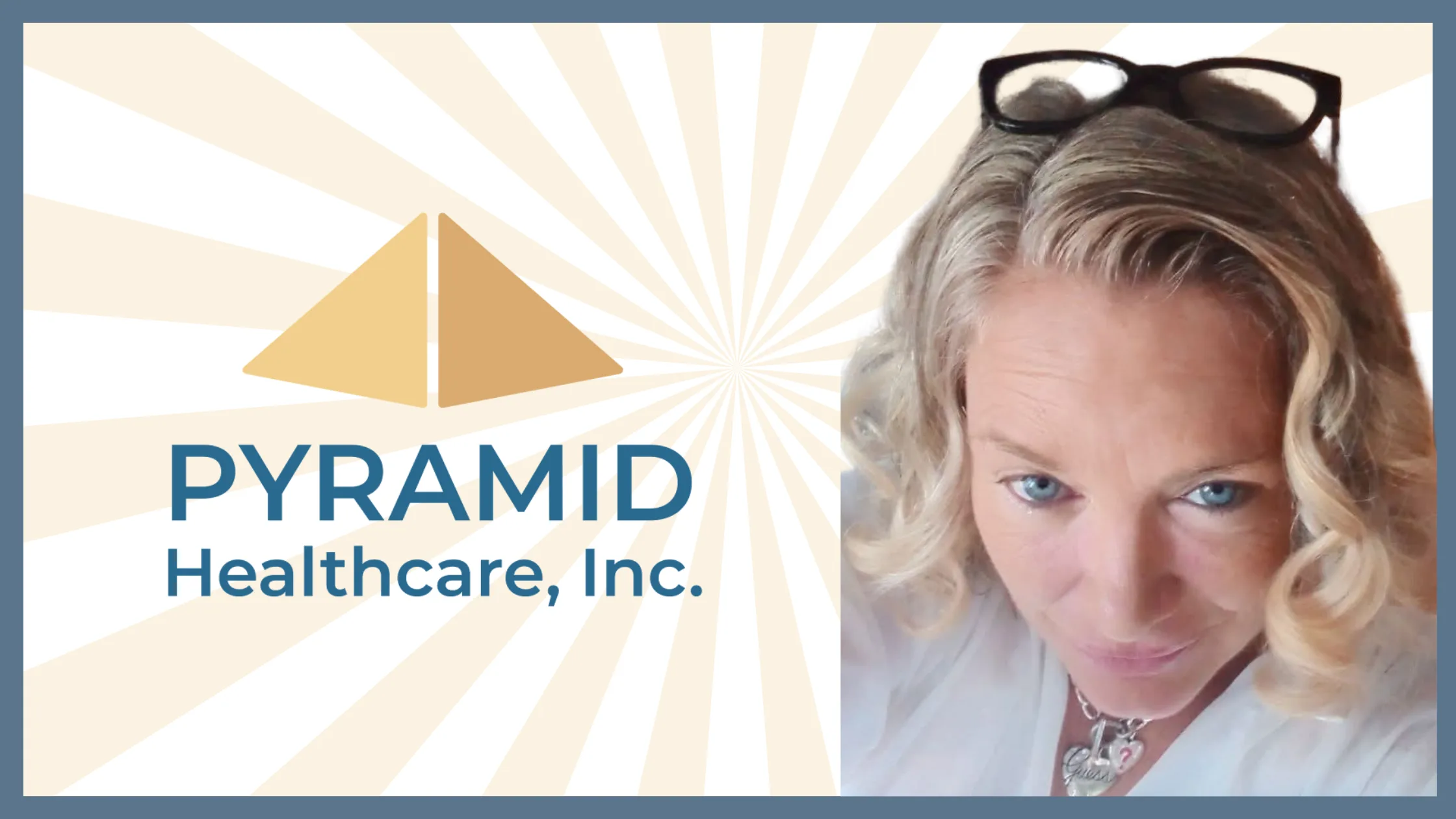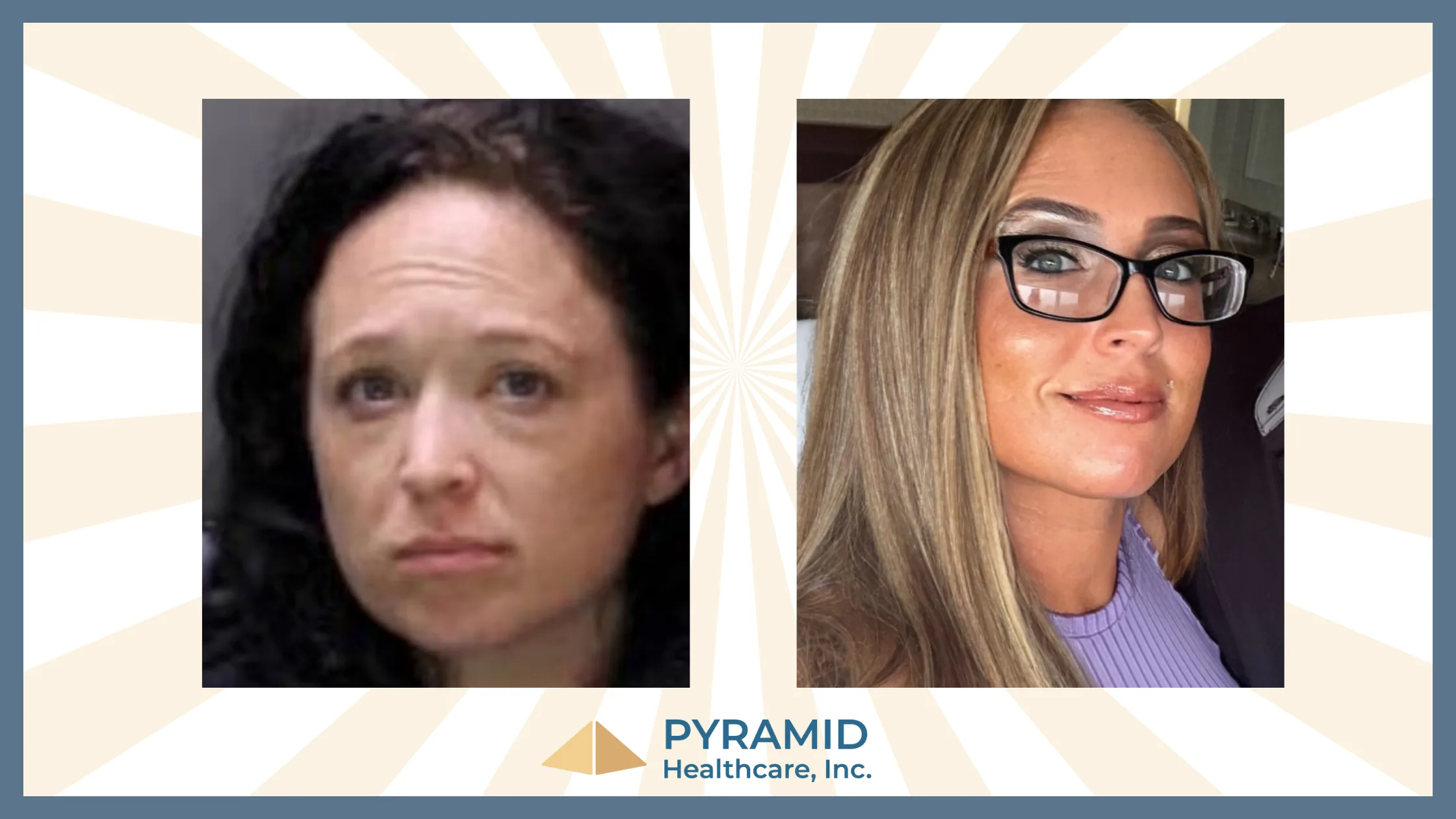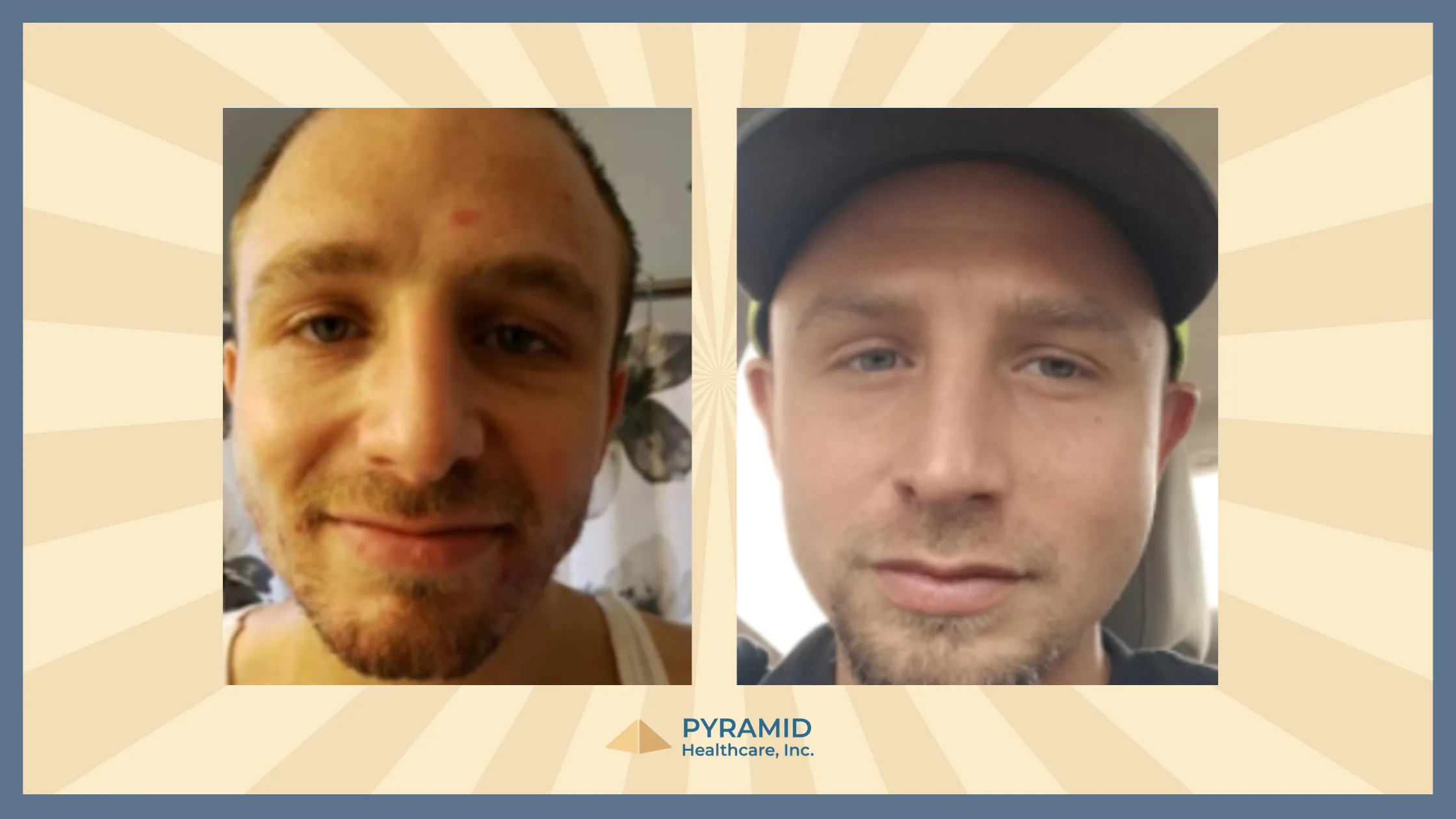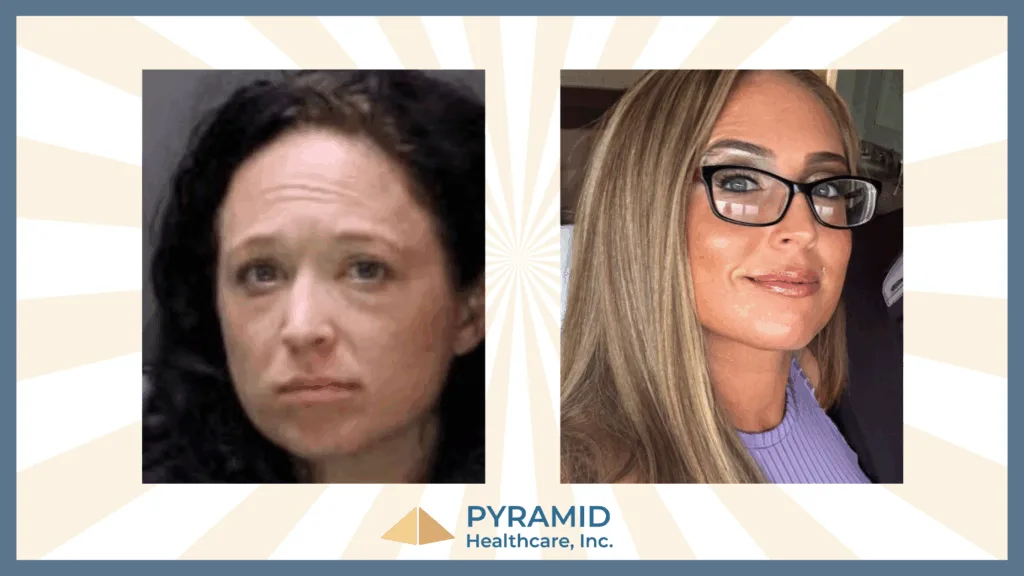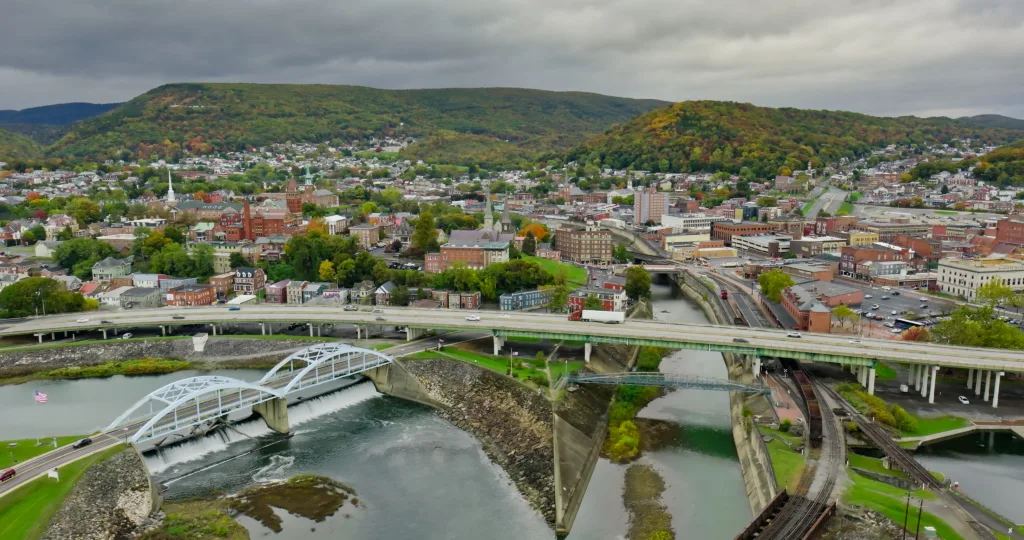Branden Douglass’ Recovery Story
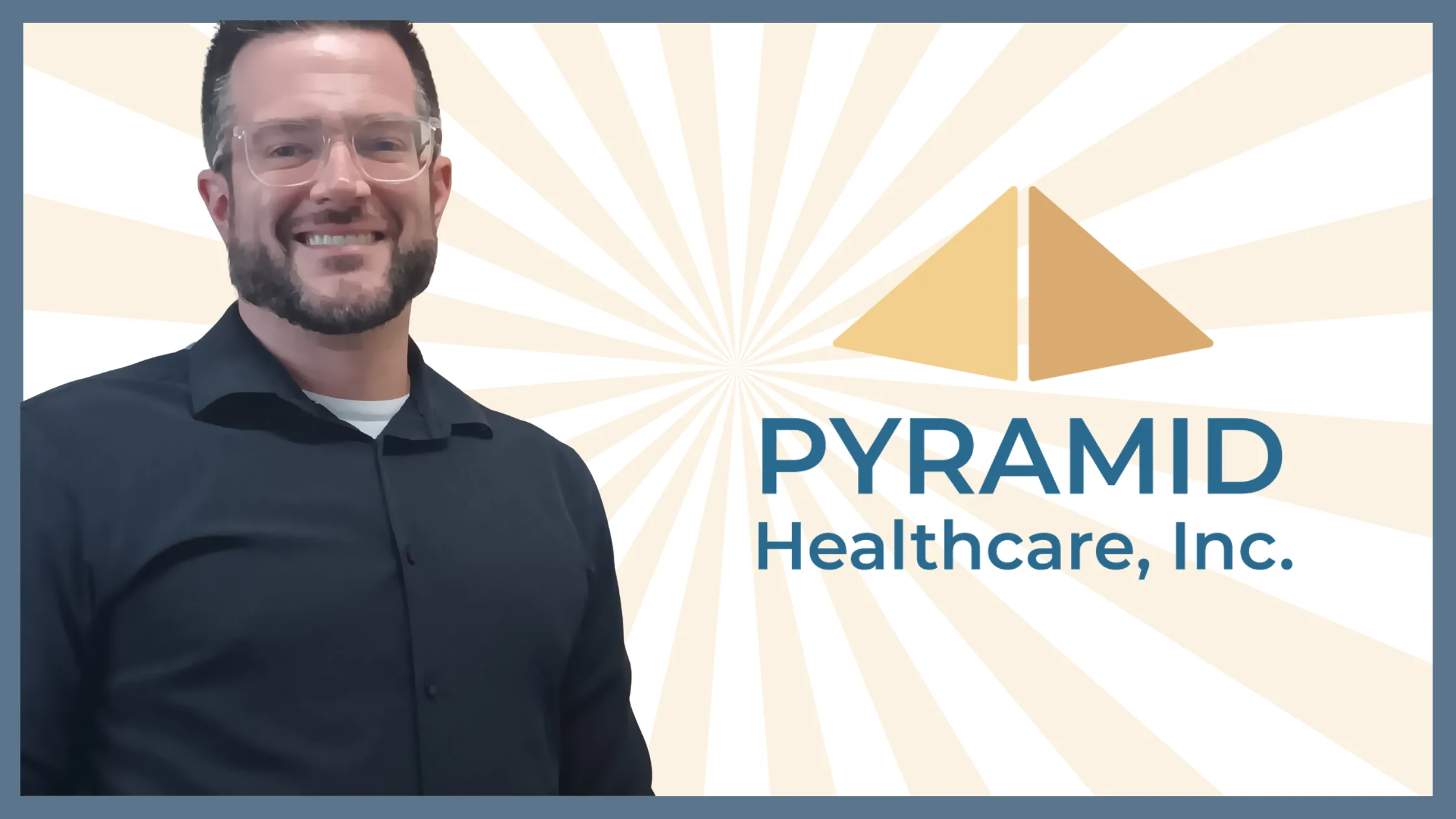
In honor of National Recovery Month this September, we’re shining a spotlight on the real-life stories of Pyramid Healthcare staff who have walked the path of recovery themselves. In this interview, Branden Douglass, Case Coordinator at Pyramid Healthcare’s Pittsburgh Residential Treatment Center shares about his powerful journey through two decades of addiction as well as helping others find hope in his new life in recovery.
Q: Can you walk us through your recovery journey?
Branden: I started using when I was 15, and I didn’t get clean until I was 35. At first it was drinking and smoking weed, but once I found opioids around 24, things spiraled. Life started getting progressively worse. I couldn’t hold down jobs and was getting fired every couple of months. From 2015 to 2022, I went through detox or treatment 11 times. I tried every kind of maintenance available—methadone, Suboxone—but nothing stuck.
I thought I had a problem with drugs. Come to find out I had a serious problem with myself.
By 2022, I’d been hospitalized multiple times—heart infection, blood infection that went septic, overdoses, car wreck. I almost died. I kept pushing back my court dates because I’d wake up too sick to attend. I even lost my glasses and was half-blind. Then, my brother overdosed and died. I was the one who found him. It was the worst thing I’ve ever experienced.
All of this made me want to use more. I’d lost faith in thinking that things could be different, and was just hoping to die. No one wanted me around them. I was facing legal issues. I had no license, no car, no family. On Thanksgiving, I realized that no one i cared about had reached out to me for a long time. My call log was full of calls to my dealer or the people I was committing crimes with. I was alone.
I went to Pyramid not because I was ready to recover, but because I had nowhere else to go and I was starving. It felt like my only choice. At first, I plotted to leave treatment with a couple other people, but it poured rain for two days straight. The rain was the only reason why I stayed. During that time, a nurse who knew me (as I had already been to treatment several times) sat and talked with me, hugged me, and cared about me. That small act of compassion flipped something inside me. I told myself I’d give recovery everything I had.
After I completed the program, I went to a long-term program. I went to First Step in McKeesport and stayed for nine months. It’s a 12-step recovery program, so I started going to meetings, building relationships, building a foundation in the community. I got a sponsor and a home group. I went to more than 90 meetings in 90 days. I became a house manager for the program.
At six months clean, I chaired my first meeting. Looking around that night, seeing people who cared about me, I realized I wasn’t alone anymore.
However, even though recovery was going well, I wanted to hold off on reaching out to my family, because I felt like they wouldn’t believe me that this time was different. But then I got a phone call from my dad letting me know that my mom had passed away. At the funeral, my dad and sister saw me clean for the first time in years. My sister told me she was proud of me. That moment changed everything. Today, I have a real relationship with them. I get to be the big brother I’m supposed to be. I get to be a good son. The tragic loss of my mom brought our family back together again.
Q: What inspired you to start working at Pyramid?
Branden: Honestly, I had no idea what I wanted to do with my life. But someone I respected told me I was doing a wonderful job in the program, helping other guys, and that they trusted and valued me. He asked me if I’d be interested in working in the field, because I’d be good at this work. I took his advice and put in an application. There’s nowhere else that I’d have wanted to work. I thought about the people who cared about me when I wanted to give up, when I had absolutely no self-worth, self-esteem or hope, and I realized I wanted to be that person for someone else.
Now I’m able to take the worst experiences I’ve been through and turn them into useful tools to help people with. The things I once hated about myself are now my favorite parts of me.
Q: What advice would you give to someone struggling or early in recovery?
Branden: You’ve gotta give yourself a chance. Something that helped me in early recovery was finding someone who not only believed in me, but who I trusted enough to be honest and transparent with. Honesty, transparency and vulnerability are invaluable. When I finally unburdened myself of the things that bogged me down my entire life, it was so powerful. There’s no doubt that was the turning point for me. Even during times when I was having doubts about recovery, I could lean on that trust in my support system.
Q: How do you spend your free time now?
Branden: I attend 12-step meetings. I enjoy going to the gym and spending time with my girlfriend and my family. I spend most of my free time trying to help people. Now, I get to be the one driving guys to meetings and treating them to ice cream, just like others once did for me.
In honor of National Recovery Month this September, we’re shining a spotlight on the real-life stories of Pyramid Healthcare staff who have walked the path of recovery themselves. In this interview, Branden Douglass, Case Coordinator at Pyramid Healthcare’s Pittsburgh Residential Treatment Center shares about his powerful journey through two decades of addiction as well as helping others find hope in his new life in recovery.
Q: Can you walk us through your recovery journey?
Branden: I started using when I was 15, and I didn’t get clean until I was 35. At first it was drinking and smoking weed, but once I found opioids around 24, things spiraled. Life started getting progressively worse. I couldn’t hold down jobs and was getting fired every couple of months. From 2015 to 2022, I went through detox or treatment 11 times. I tried every kind of maintenance available—methadone, Suboxone—but nothing stuck.
I thought I had a problem with drugs. Come to find out I had a serious problem with myself.
By 2022, I’d been hospitalized multiple times—heart infection, blood infection that went septic, overdoses, car wreck. I almost died. I kept pushing back my court dates because I’d wake up too sick to attend. I even lost my glasses and was half-blind. Then, my brother overdosed and died. I was the one who found him. It was the worst thing I’ve ever experienced.
All of this made me want to use more. I’d lost faith in thinking that things could be different, and was just hoping to die. No one wanted me around them. I was facing legal issues. I had no license, no car, no family. On Thanksgiving, I realized that no one i cared about had reached out to me for a long time. My call log was full of calls to my dealer or the people I was committing crimes with. I was alone.
I went to Pyramid not because I was ready to recover, but because I had nowhere else to go and I was starving. It felt like my only choice. At first, I plotted to leave treatment with a couple other people, but it poured rain for two days straight. The rain was the only reason why I stayed. During that time, a nurse who knew me (as I had already been to treatment several times) sat and talked with me, hugged me, and cared about me. That small act of compassion flipped something inside me. I told myself I’d give recovery everything I had.
After I completed the program, I went to a long-term program. I went to First Step in McKeesport and stayed for nine months. It’s a 12-step recovery program, so I started going to meetings, building relationships, building a foundation in the community. I got a sponsor and a home group. I went to more than 90 meetings in 90 days. I became a house manager for the program.
At six months clean, I chaired my first meeting. Looking around that night, seeing people who cared about me, I realized I wasn’t alone anymore.
However, even though recovery was going well, I wanted to hold off on reaching out to my family, because I felt like they wouldn’t believe me that this time was different. But then I got a phone call from my dad letting me know that my mom had passed away. At the funeral, my dad and sister saw me clean for the first time in years. My sister told me she was proud of me. That moment changed everything. Today, I have a real relationship with them. I get to be the big brother I’m supposed to be. I get to be a good son. The tragic loss of my mom brought our family back together again.
Q: What inspired you to start working at Pyramid?
Branden: Honestly, I had no idea what I wanted to do with my life. But someone I respected told me I was doing a wonderful job in the program, helping other guys, and that they trusted and valued me. He asked me if I’d be interested in working in the field, because I’d be good at this work. I took his advice and put in an application. There’s nowhere else that I’d have wanted to work. I thought about the people who cared about me when I wanted to give up, when I had absolutely no self-worth, self-esteem or hope, and I realized I wanted to be that person for someone else.
Now I’m able to take the worst experiences I’ve been through and turn them into useful tools to help people with. The things I once hated about myself are now my favorite parts of me.
Q: What advice would you give to someone struggling or early in recovery?
Branden: You’ve gotta give yourself a chance. Something that helped me in early recovery was finding someone who not only believed in me, but who I trusted enough to be honest and transparent with. Honesty, transparency and vulnerability are invaluable. When I finally unburdened myself of the things that bogged me down my entire life, it was so powerful. There’s no doubt that was the turning point for me. Even during times when I was having doubts about recovery, I could lean on that trust in my support system.
Q: How do you spend your free time now?
Branden: I attend 12-step meetings. I enjoy going to the gym and spending time with my girlfriend and my family. I spend most of my free time trying to help people. Now, I get to be the one driving guys to meetings and treating them to ice cream, just like others once did for me.

